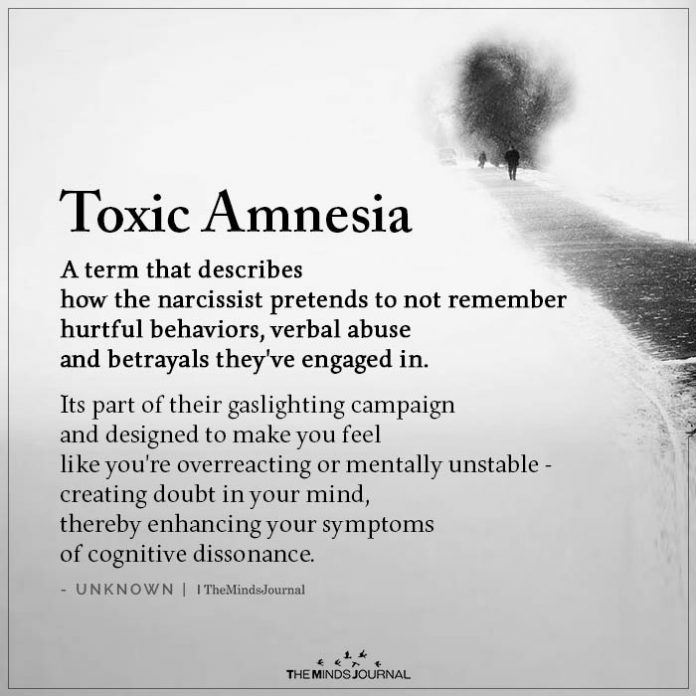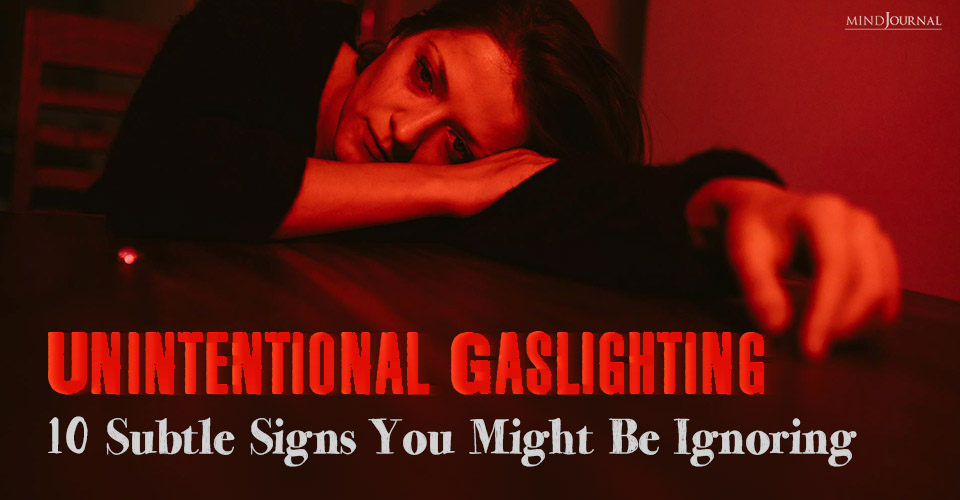Am I toxic? Have you asked yourself this question a lot of times without getting any clear answer? Ever wondered if you are a difficult person in the lives of people around you?
Are you toxic?
Toxic people can be found in every sphere of life and it can often be hard to identify them. But when you are the toxic influence in others’ lives, then it will require a lot of self-awareness to realize that. “Draining, unsupportive, and difficult people are one of life’s greatest challenges,” explains Vanessa Van Edwards, national best-selling author & founder at Science of People.
Although most of us can be negative at times as we navigate through the ups and downs of life, when our behavior starts to hurt others mentally and emotionally, we become toxic. However, identifying that you are a toxic person can be one of the most challenging things to do.
“It can be horribly painful to admit that we are creating our own hardships but, once we take ownership, we can turn things around,” writes psychology professor Jeanne Croteau. However, before you start exploring the answer to your question “Am I toxic?”, you first need to understand what it truly means.
Read 7 Toxic Thoughts To Get Rid Of As You Get Older and What To Think Instead

What does being toxic mean?
A toxic person is generally harmful to others. They can hurt others with their words, behavior, attitude and actions. With every interaction, a toxic person will make others feel worse off than before. At times, the negative effects of a toxic person can be realized immediately while at other times it may take effect more slowly.
Lachlan Brown, founder and editor of Hack Spirit, explains “A toxic person is someone who makes others feel bad with actions or words. They bring others down more than up, and they leave people exhausted, emotionally drained, and negative.”
Now that you know the definition of a toxic person, it’s time you ask yourself: “Am I toxic?” Are you the toxic person in the lives of your family members, friends, and coworkers? Let’s find out.
Read 13 Signs You’re The Toxic Partner In Your Relationship
Signs that you are toxic

If you always find yourself wondering “Am I toxic?”, then the following signs will help you find the answer out. Take a look:
1. You focus on the negative
Life is full of positive and negative experiences. Although we need to deal with and overcome our fair share of challenges and hardships, life can be very enjoyable and satisfying when we develop a positive, optimistic, and abundance mindset. However, when you are a negative or toxic individual, you will be too focused on the negative aspects of life.
You will always worry about how things can go wrong in your life and give more importance to the negatives than the positives around you. Eventually the negativity will engulf you and you will start spreading your toxicity to others. “After a while, this type of behavior will attract other toxic, negative people and you may find yourself struggling to feel good about anything,” explains Jeanne Croteau, a psychology professor.
When interacting with others, you always feel a strong need to be right. Even if the other person is evidently correct, you will choose to overlook the facts and stick to your opinions. As a result, it can seriously affect your career and your relationships. Whenever someone proves you wrong, you resort to toxic arguments to maintain your stand, even if that damages your relationships and hampers your mental peace. Accepting defeat is never easy for toxic people. This is one of the ways to answer the question: “Am I toxic?”
3. You are verbally abusive
You use your words strategically to shame, blame and abuse others. “It is pejorative and creates a power dynamic that causes others to pull back and not trust you,” writes Erica Bonham, a licensed professional counselor. Verbally abusing and shaming people, calling them names just to make them feel inferior to you is a prominent sign of toxicity. Even if your excuse is to motivate them, shaming someone is still a crippling behavior.
Read 10 Common Patterns Of Verbal Abuse To Watch Out For
4. You talk, but you don’t listen
Toxic people tend to dominate all interactions and conversations. If you find yourself in a one-sided conversation more often than not, then it’s a red flag. When toxic people engage in conversations with others, then it is primarily dominated by their own interests and issues. Toxic people are bad listeners and they often get frustrated when the conversation is not about them. Jeanne writes “It’s inconsiderate, selfish, and sends the message that you aren’t interested in anyone else’s life but your own.”

5. You shift blame on others
Everytime you face a problem, you instantly shift the blame on everyone else. You can never see, admit or accept your own fault. Irrespective of what obstacles we face, we always have a role to play in it, even if it’s minor. But when you fail to see how you might be responsible for your problems and blame others instead, then it’s a clear red flag. “If nothing is ever your fault, or you have difficulty taking responsibility or apologizing when you make a mistake, this may be something to reconsider or get support around,” explains Erica Bonham, LPC.
Even when the problem is not your fault, as a toxic individual, you will refuse to get out of the difficult situation and love playing the victim. “It’s a convenient way to blame everyone for all of your problems without having to address anything. A healthy-minded individual, however, will make every effort to get into a better position so that they can find peace and happiness,” writes Jeanne.
6. You love to gossip
Talking behind others’ backs is something you are really good at. Toxic people thrive in gossip about people and love spreading rumors to make themselves look better. Of course, most of us engage in harmless gossip from time to time. But when you are more concerned about what your coworkers and friends are doing instead of focusing on your own life, then it can be a serious problem. If you are a toxic person, then you will love to associate yourself with negativity through trash talks and rumors.
Erica explains “If you are the one doing the gossiping, it won’t take long before people begin to question whether you talk about them that way as well, and again, damaged relationships may be the result.”
Read How Coming From A Toxic Family Makes You Hard To Love
7. You are an attention-seeker
Attention-seeking behavior is one of the most prominent signs of toxicity. When we have low self-esteem and a low sense of self-worth, we desperately seek external validation from our parents, partners, friends, coworkers, and even social media. If you feel like you constantly seek attention from others and not getting it enough is making you toxic then make sure to talk to a loved one or a therapist.
8. You are a taker, not a giver
You are always upfront about asking for help or taking support from others. But when it’s your turn to lend a helping hand you rarely return the favor. Toxic people inherently take from others more than they actually give back. “Do you find yourself hiding when you know people are asking for help? Do you make excuses for why you can’t lend a hand or offer assistance?”, asks Jeanne Croteau. If your answer is yes, then you are likely a toxic person.
“If you tend to be the taker of favors, emotional energy, talking time, or even physical space, think about the impact of that. The people in your life are eventually going to feel like they are being taken advantage of and distance themselves from you,” adds Erica.

9. You are incapable of letting go
When we have experienced emotional pain or heartbreak from someone close to us, then it becomes crucial that we start letting go to begin the healing process. Despite how difficult it can be, we always navigate our way through the problems and focus on a brighter, happier future. However, toxic people refuse to let go of those who hurt them. Not only do they hold on longer than they should, making the relationship more toxic, they are also unable to forgive, tend to be vengeful and hold grudges for a long time.
So if you are keener on hurting the person who wronged you then take steps to improve your own life, then it’s safe to say that you have a toxic mentality. If you are still asking yourself “Am I toxic?”, then this is one of the most crucial signs to look out for.
Read Why Letting Go Is Not Always A Bad Thing
10. You don’t have any friends
One of the simplest ways to answer the question “Am I toxic?” is to take a look around and see how many people truly love and care for you. How many friends do you have? Friends who will stand by your side through thick and thin. People tend to stay away from toxic individuals as they often act like energy vampires. Toxic people only attract other toxic individuals. When you realize that most of your close friends and loved ones have pulled away or maintained a distance from you, then it’s a clear sign that you are toxic.
Jeanne explains “When people start leaving our lives, they tend to do it quietly in an attempt to avoid an uncomfortable confrontation. They are, after all, pulling away for a reason. It’s not until a special occasion, crisis, or significant event occurs that we realize how alone we’ve become.”
11. You complain a lot
As you have a tendency to constantly look at the negative side of things, you are prone to complain about your options, opportunities, and life. As you keep complaining about everything, you become more negative and drain others of their energy with your nagging behavior. “We all have hard days, but if you tend to focus on the negative or complain excessively, this also might have a negative impact on people,” writes Erica Bonham, LPC.
Read 15 Toxic Habits You Need To Give Up To Win In Life

Still wondering “Am I toxic?” Then here are few more tell-tale signs that you need to look out for to understand how toxic and negative you may be, according to A Conscious Rethink:
12. You make people feel unworthy, unappreciated, unloved, ashamed, and embarrassed and hurt them emotionally. They end up feeling worse after interacting with you.
13. People often avoid you and don’t include you in their plans anymore. They never initiate contact and limit their interaction and exposure to you.
14. You have a superiority complex and strongly believe that you are better than everyone else. You are also highly critical and frequently criticize others for not doing things your way.
15. You are a manipulative and controlling person. You dominate others around you and emotionally manipulate them to get them to do what you want.
16. You don’t accept your own mistakes or apologize. You are very defensive and saying sorry is perhaps the hardest thing to do. However, making excuses is a lot easier for you, and you always have a reason for why you behaved in a certain way.
17. You use the kindness and compassion of others for your own personal gain. You see compassionate people as an opportunity to gain something without offering anything in return. You don’t appreciate the people who help you.
18. You put others down to appear smarter. Making fun of people and humiliating them in front of others is a strategy that you use to score brownie points. You don’t even refrain from making personal attacks.
19. When someone hurts your feelings or ego, then you can hold a grudge against them for years. Even if they apologize to you, you will not forgive them and let them know about it. You may even try to make them pay for hurting you.
20. You take everything personally. This can make you rather aggressive at times, especially when you engage in an argument or conflict. You can say or do anything to hurt them and ridicule them in unacceptable ways.
21. You never feel happy about others’ success, no matter how close they may be to you. You refuse to celebrate their success and might even drain them of their positivity with your toxic behavior.
22. You are not known for making compromises as you are rather controlling and manipulative. You always put your own needs first as you don’t really care if others suffer or not.
23. You have unstable moods. Due to your extreme and unpredictable mood swings, most people avoid you. People feel like walking on eggshells around you as they don’t know what might trigger a volatile mood in you.
You ask yourself “Am I toxic?” You tend to be self-aware of your toxic behaviors and how they affect others mentally and emotionally. You also realize how all the toxicity affects your life and relationships negatively.
Read 13 Signs You’re Suffering From Toxic Family Enmeshment
Are a you toxic person?
Can you identify with all or most of these signs? Have you found the answer to your question: “Am I toxic?”
If yes, then it can be a heartbreaking realization. However, the fact that you are now aware of your toxic behavior is the very first step towards recovery. “The good news is that, the sooner you take ownership of your role in your unhappiness, the sooner you can kick toxic behaviors to the curb,” writes psychology professor Jeanne Croteau.
Most of the time, toxic behaviors stem from past traumatic experiences or unhealthy attachment patterns. Although these do not justify your toxic behavior, it can help you understand the root causes and help you start the healing process. Erica Bonham, LPC explains “We tend to become overpowering and toxic because we were once overpowered and mistreated.”
Awareness is the first step towards healing. But the second step is owning up to your past behaviors and actions. Lachlan Brown, the founder of Hack Spirit, writes “Own what you have done, even if you feel like the worst person ever. Taking ownership of our actions is one of the keys to making long-lasting changes.”
Read 20 Signs You Are The Child Of a Toxic Parent

Seek help
Once you’ve become self-aware and taken responsibility for your past behavior, you need to seek and get professional help. Therapy can help you fully understand the deeper mental and emotional issues you are dealing with and show you ways to overcome it. “A skilled therapist will be able to help you find the injury and make changes in these behaviors,” adds Erica.
Although you may be naturally attracted towards negativity, with self-help tools, practice, effort, support from loved ones, and professional help you can become a more optimistic and compassionate person. Yes, it will take a lot of time and effort, but if you are determined, you can stop being toxic and have healthy relationships and happy life.
Read 8 Tips to Heal from Your Own Toxicity











Leave a Reply